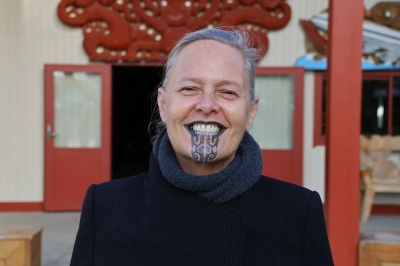Co-teaching
Published:
July 31, 2024

Co-teaching, or co-facilitation is a powerful tool for educating the mental health and addiction workforce. In this approach, two facilitators deliver a training programme or professional development sessions, one with clinical experience and the other with lived experience of mental health challenges or problematic substance use.
Internationally, this has been demonstrated in the Capital Region of Denmark with a wide-ranging programme to educate practitioner staff in the concepts and principles of recovery. Locally, we see the co-facilitation approach used in the delivery of Mental Health 101 (MH101®) and Addiction 101 courses, run through Blueprint for Learning.
This article describes the Denmark experience as a ‘stepping stone toward the vision of mental health services based on personal recovery.’ The large number of participants (3,700) enabled greater common ground for understanding the concept of recovery. Further, an evaluation of the programme showed that the combination of the two teachers’ backgrounds was an important educational element, as indicated by 68% of the participants.
In contrast to the Danish recovery course, the MH101® workshop is aimed at people in communities or those with no or limited experience in the mental health and addiction sector. It is a mental health literacy programme. However, it similarly uses a co-facilitation model by two facilitators with respective lived experience and clinical experience.
The Blueprint for Learning approach is firmly grounded in ‘The Power of Contact’ theory, using contact with people with lived experience of mental health challenges or problematic substance use as an evidence-informed strategy for countering stigma and discrimination.
The use of co-teaching (or co-facilitation) is a positive step towards the inclusion and promotion of the lived experience voice, but as the Danish example found, “the demands of an organisational system that does not encourage an individual’s journey toward personal recovery presents a challenge”.
We need to continually advocate for services and systems to place people and their recovery centrally in policies and programmes. The sharing of power in co-teaching needs to be reflected by a sharing of power (and at times delegation of power) with lived experience at a decision-making level.
Read the MH101-Co-faciliation study report
Read Co-teaching Recovery Mental Health Care Professionals article


